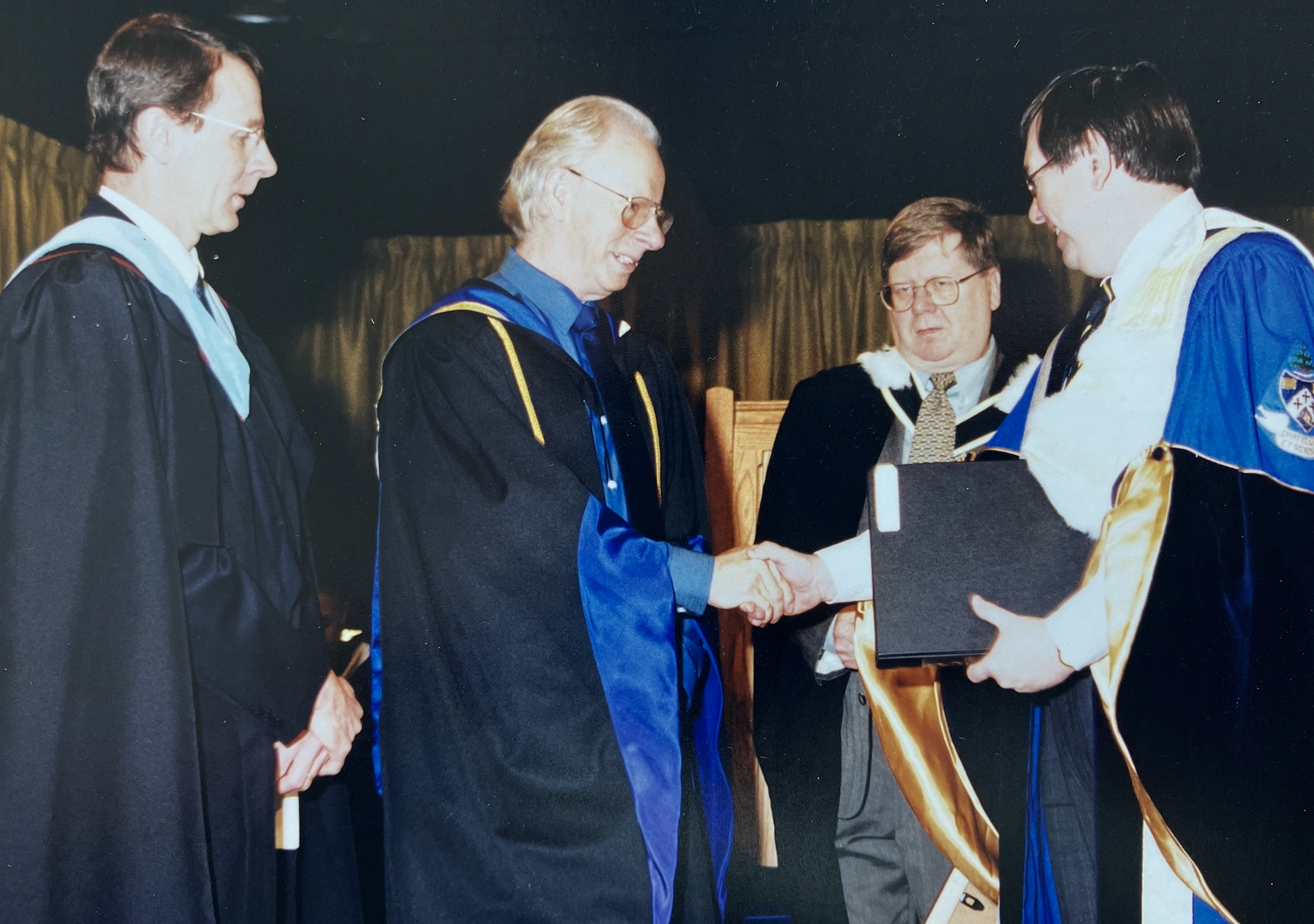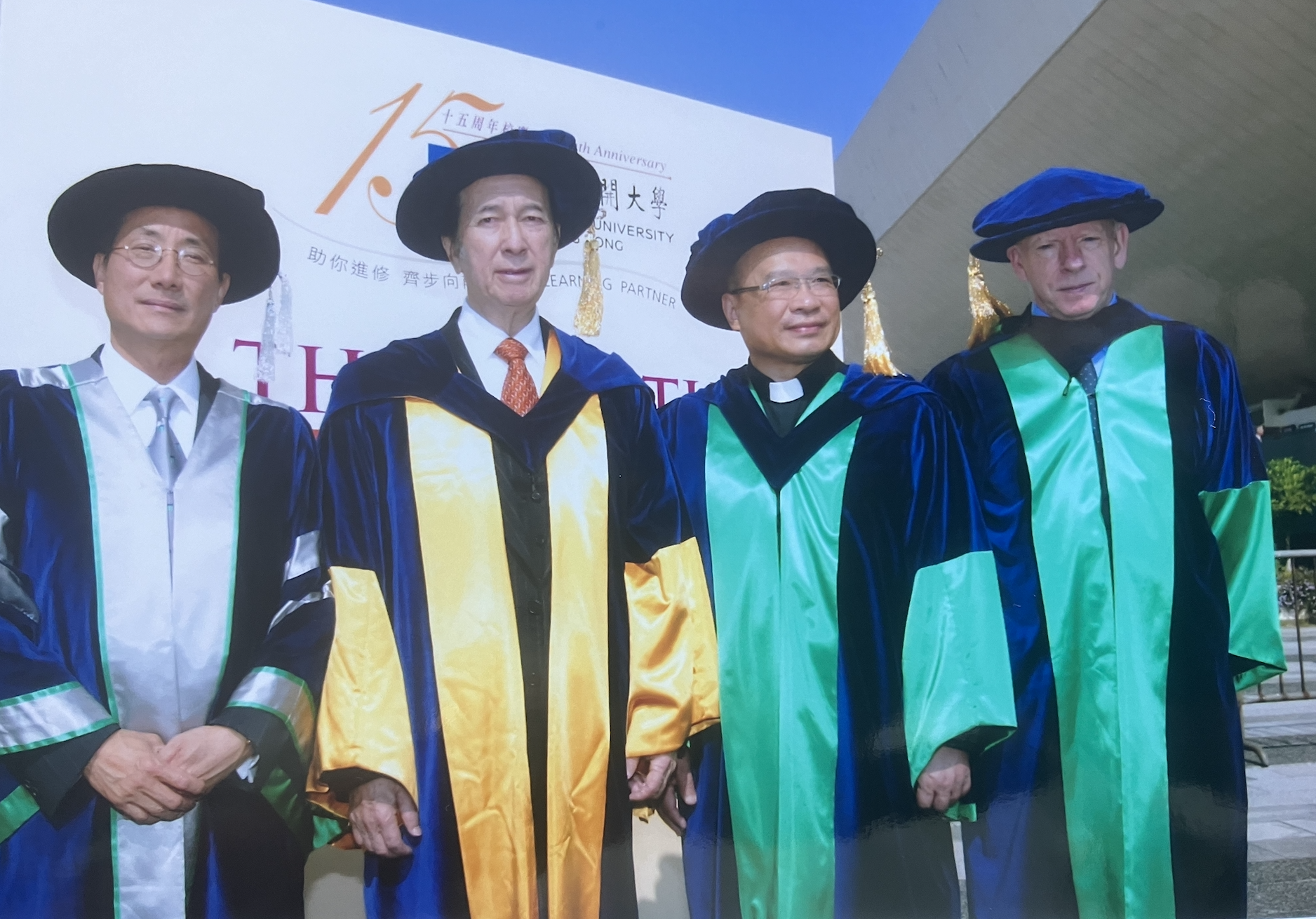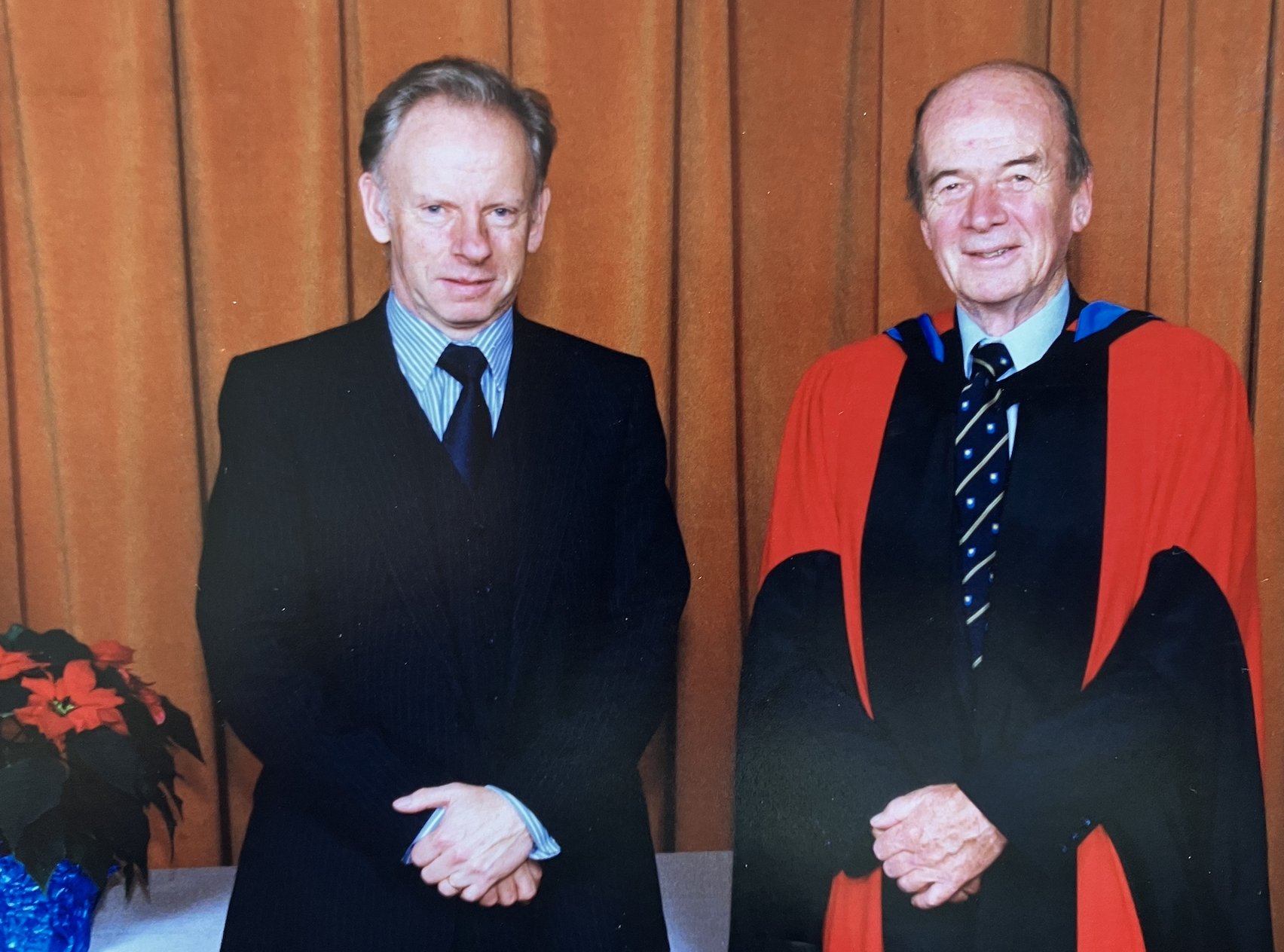
I hope you are now settled back in the saddle after the hectic opening of the new semester. (At last, I can get on my local bus, the 99B, which is always packed to bursting for the first two weeks of the semester, until the new students realise they don’t have to be on campus from 9.00-5.00 every day – or at all, if they take an online course.)
I am writing an autobiography, mainly for my family, but it does cover some key moments in the development of open and online learning. I thought I would share these as there seems to be a growing interest in the history of educational technology.
Note that these posts are NOT meant to be deeply researched historical accounts, but how I saw and encountered developments in my personal life. If you were around at the time of these developments and would like to offer comments or a different view, please use the comment box at the end of each post. (There is already a conversation track on my LinkedIn site and on X). A full list of the posts to date will be found toward the end of this post.
A burst of honorary degrees
In a previous post: A personal history: 22. Innovating in distance education at the Open University of Portugal in the 2000s I mentioned that I was awarded a total of six honorary degrees from five different countries within the span of 10 years (1995-2004): none before and none since. My first one was at the Universidade Aberta in Portugal in 1995.
The ritual of graduation ceremonies
Although grateful and proud to be awarded such honours, I’ve always been puzzled by the rituals of such degrees, and in particular how institutions come to decide on who should receive them. Yes, I know, there’s a committee, but what are the criteria? It usually comes down in the end to who is on the committee and who they know.
In 2003, Geoffrey Miller wrote an interesting article on the function of ritual in society in which he stated:
Rituals – ceremonies of birth, death, marriage, initiation, healing, harvest, religious observance – are found in all known cultures, and appear to have been performed for tens of thousands of years. They speak to people’s core emotions and reveal values that a society holds dearest. Since their expression is conventional and obligatory, they join the individual in solidarity with the group.
Honorary degrees are usually awarded at graduation ceremonies, and help establish a ritual that is meant to bind together all the members of that community: faculty, students, sponsors (including government) and staff – and to make a statement at large about the value and importance of a university, college or school, but perhaps most importantly, they provide an opportunity for friends and family to celebrate publicly the achievements of the students. I found graduation ceremonies to be particularly moving at Open Universities, where mature students got a second chance to get an academic degree, despite many challenges in their personal lives.
Nevertheless, the ritual of an honorary degree in particular has always seemed a bit whimsical to me: the silly hat, the extravagant gown (kept in storage and whipped out on the day of the ceremony, to be immediately returned – thank goodness), and over-the-top valedictory speeches. Honorary degrees usually go to what teenagers in London used to call BOFs (boring old farts), the good, the great, and sometimes the to-be-feared. More importantly, they are often used to butter up key institutional stakeholders.
The Open University of Hong Kong
For instance, at my honorary degree ceremony at the Open University of Hong Kong in 2004 (post-Mao/Gang of Four, British colonisation, and pre-Xi Jinping), the four recipients of honorary degrees included:
- Dr. Liu Yongxiang, Vice Chair, National People’s Congress of the People’s Republic of China
- Stanley Ho, a Hong Kong billionnaire businessman, nicknamed the Godfather of Gambling because of his ownership of casinos in Macau and Hong Kong
- Bishop Michael Yeung, CEO of Caritas, a major Catholic charity
- me, representing, I guess, open and distance education.
The university had certainly covered all its bases. (It is now a hybrid university with both on-campus and online students and is now called Hong Kong Metropolitan University.)

Laurentian University, Ontario
The most unusual honorary degree ceremony I attended though was at Laurentian University in 2001. In 1995 I had just become Director of Distance Education at UBC, when into my office walked someone I had never met before, a small black man originally from Haiti, but at the time the Director of Marketing and Communications at Athabasca University.
‘Let me introduce myself and tell you why I am here. My name is Maxim Jean-Louis and I want you to tell me all I need to know about running a distance education organisation.’
Maxim had applied to become President of Contact North in Ontario, and was just doing his homework before his (successful) interview for the job. He has now been President for over 27 years, a remarkable feat given the politics of higher education in Ontario. I am sure he was influential in nominating me for the honorary degree at Laurentian. It was also at the Laurentian degree convocation where I first met Jean Watters, who at that time was the President of Laurentian and later became a great friend and golfing colleague.

However, the person I knew best at Laurentian at that time was Denis Mayer, the Associate Vice-President of Student Affairs and shortly afterwards the President of the Canadian Association of Distance Education. He was my official host for the ceremony.
My wife and I were flying from Vancouver to Sudbury, Northern Ontario, where Laurentian University has its headquarters. Because it serves a huge area in Northern Ontario, it has always had a strong distance education component. However, we had to change flights at Pearson Airport in Toronto. When we got to Sudbury, we found Air Canada had left our bags in Toronto. Both my wife and I were casually dressed for flying, but her best dress and my only suit and decent shoes were in the bags in Toronto. The ceremony was the following day, and the bags had still not arrived. I had to borrow a suit from Denis, and my wife had to borrow a dress from Denis’ wife. Fortunately we were all a similar fit. I also had to go out and buy a pair of shoes as I had worn trainers for the flight.
Universitat Oberta de Catalunya
Sometimes at honorary degrees you are expected to speak. I had been a consultant at the Open University of Catalonia over a period of several years, but I was still surprised when they awarded me an honorary degree in 2001. At the time I had been living in Barcelona and learning to speak Catalan (an ancient language somewhere between French and Spanish). My coach, Laia, a beautiful young Catalan woman, came to our apartment on the Rambla twice a week for an hour (my wife was always there at the same time, for some reason), and when Laia heard that I was to give an acceptance speech, insisted that I should do it in Catalan. However, I learned to my horror that I was expected to speak for an hour. I had about three weeks to prepare. Eventually, the day came, and, much to the astonishment (and pain, from the look on their faces) of the Catalan audience, I gave the whole speech in Catalan – but I did receive tumultuous applause at the end. Sometimes, just trying is enough.
My other honorary degree was from Athabasca University as well as a Medal of Merit from Universidad Vera Cruzana in Mexico, both in 2004. I also was invited to give the valedictory speech for Walter Perry, the first Vice Chancellor of the Open University, for his honorary degree at the University of Victoria, BC, in 1992.

Are honorary degrees a joke?
Yes, according to a thread in Reddit. Those who have worked hard to achieve their own degree can be upset that someone who hasn’t done the studying gets a ‘degree.’ Sometimes, universities get it wrong by not understanding current moods and not being sensitive to current issues. However, I think the emphasis should be on the honour, not the degree. It is a way for a university to recognise people who have made a difference to their institution, local community, or field of study. Indeed, I would like to see more recognition of people who work hard for others and an honorary degree is a nice way of doing this.
All I can say is I have had a lot of fun with each of my awards. I got to play golf in Hong Kong and Sudbury, to learn to speak Catalan, to work in Lisbon, to meet some really interesting people, and to make some lifelong friends as a result. Bring it on!
Reference
Geoffrey P. Miller, “The Legal Function of Ritual” (March 11, 2004). bepress Legal Series. bepress Legal Series.Working Paper 186.
Previous posts in this series
Here is a list of the posts to date in this series:
A personal history: 1. The start of the Open University
A personal history: 2. Researching the BBC/Open University broadcasts
A personal history: 3. What I learned from Open University summer schools
A personal history: 5. India and educational satellite TV
A personal history: 6. Satellite TV in Europe and lessons from the 1980s
A personal history: 7. Distance education in Canada in 1982
A personal history: 8. The start of the digital revolution
A personal history: 9. The Northern Ireland Troubles and bun hurling at Lakehead University
A personal history: 10. Why I emigrated to Canada
A personal history: 11. The creation of the OLA
A personal history: 12. My first two years at the Open Learning Agency
A personal history: 13. OLA and international distance education, 1990-1993
A personal history: 14. Strategic planning, nuclear weapons and the OLA
A personal history: 15. How technology changed distance education in the mid 1990s
A personal history: 16. NAFTA, video-conferencing and getting lost in Texas
A personal history: 17. Innovation in distance education at UBC
A personal history: 18. Developing the first online programs at UBC – and in Mexico
A personal history: 19. Some reflections on research into the costs and benefits of online learning
A personal history: 20. Identifying best practices for ed tech faculty development
A personal history: 21. Open and distance learning in Japan and South Korea
A personal history: 23. Open and distance learning in Australia and New Zealand – and 9/11









 Dr. Tony Bates is the author of eleven books in the field of online learning and distance education. He has provided consulting services specializing in training in the planning and management of online learning and distance education, working with over 40 organizations in 25 countries. Tony is a Research Associate with Contact North | Contact Nord, Ontario’s Distance Education & Training Network.
Dr. Tony Bates is the author of eleven books in the field of online learning and distance education. He has provided consulting services specializing in training in the planning and management of online learning and distance education, working with over 40 organizations in 25 countries. Tony is a Research Associate with Contact North | Contact Nord, Ontario’s Distance Education & Training Network.

